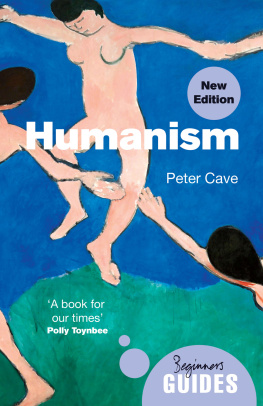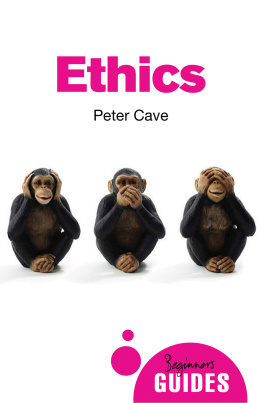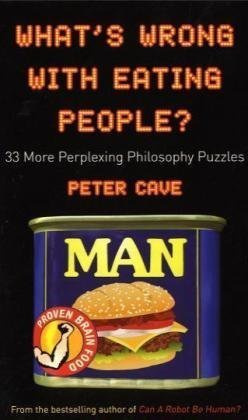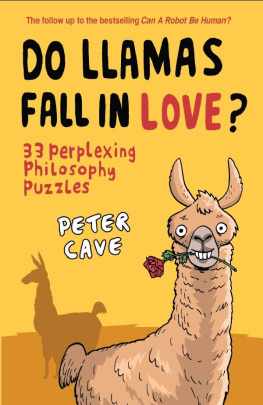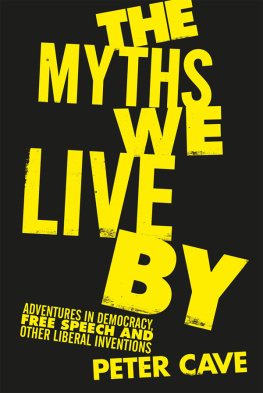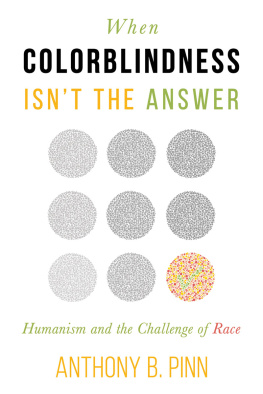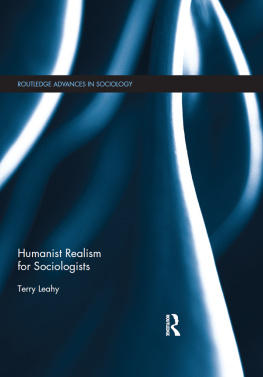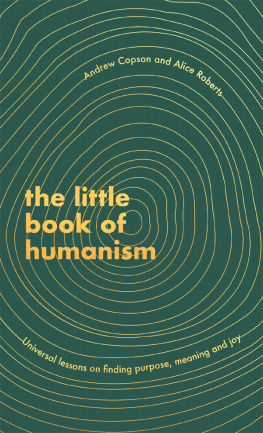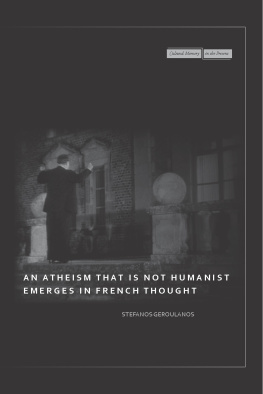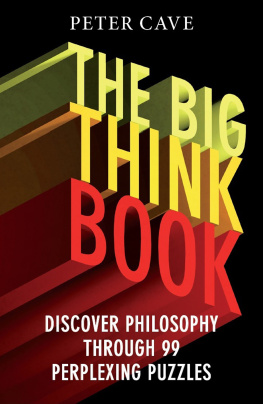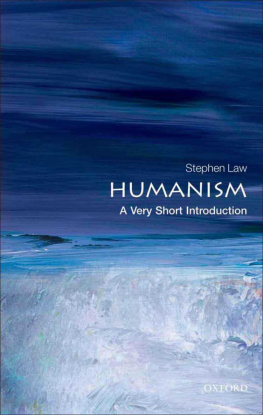Contents
Guide
Humanism
A Beginners Guide
ONEWORLD BEGINNERS GUIDES combine an original, inventive, and engaging approach with expert analysis on subjects ranging from art and history to religion and politics, and everything in-between. Innovative and affordable, books in the series are perfect for anyone curious about the way the world works and the big ideas of our time.
aesthetics
africa
american politics
anarchism
ancient philosophy
animal behaviour
anthropology
anti-capitalism
aquinas
archaeology
art
artificial intelligence
the bahai faith
the beat generation
the bible
biodiversity
bioterror & biowarfare
the brain
british politics
the Buddha
cancer
censorship
christianity
civil liberties
classical music
climate change
cloning
the cold war
conservation
crimes against humanity
criminal psychology
critical thinking
the crusades
daoism
democracy
descartes
dewey
dyslexia
economics
energy
engineering
the english civil wars
the enlightenment
epistemology
ethics
the european union
evolution
evolutionary psychology
existentialism
fair trade
feminism
forensic science
french literature
the french revolution
genetics
global terrorism
hinduism
history
the history of medicine
history of science
homer
humanism
huxley
imperial china
international relations
iran
islamic philosophy
the islamic veil
jazz
jesus
journalism
judaism
justice
lacan
life in the universe
literary theory
machiavelli
mafia & organized crime
magic
marx
medieval philosophy
the middle east
modern slavery
NATO
the new testament
nietzsche
nineteenth-century art
the northern ireland conflict
nutrition
oil
opera
the palestineisraeli conflict
parapsychology
particle physics
paul
philosophy
philosophy of mind
philosophy of religion
philosophy of science
planet earth
populism
postmodernism
psychology
quantum physics
the quran
racism
rawls
reductionism
religion
renaissance art
the roman empire
the russian revolution
shakespeare
shii islam
the small arms trade
stalin
sufism
the torah
the united nations
the victorians
volcanoes
war
the world trade organization
world war II

Humanism
A Beginners Guide
Peter Cave

Contents
To the memory of
H. H. and G. V.
gentle man and gentle woman
Preface to the extended edition
May you live in interesting times.
Chinese curse (apocryphal)
Since the 2009 initial publication, a lot has happened. The happenings have not, of course, included proofs, to humanists satisfaction, that God or gods exist or proofs to religious believers satisfaction that neither God nor gods exist. The many events have, though, continued to demonstrate the importance of humanist values: of respect for people; for freedom, fairness and fellow feeling all without need of divine guidance.
The times, with worldwide disasters, have been interesting in the manner implied by the curse epigraph; they should also have been painful for those humanists who believe adherence to humanist values makes it clear what ought to be done, whether the times be emergencies or more usual.
People, be they humanist or no, who see freedom as the most glorious of values have had to live with pandemic lockdowns and borders closed to desperate migrants who flee oppressions or climate disorders by clinging onto flimsy boats in raging seas. My guess is that many lovers of freedom who oppose lockdowns and condemn restrictions to combat global warming are keen to keep border controls and keen to see them strengthened.
People, be they humanist or no, who value equality of respect have had to live with deeper inequalities in society inequalities aggravated by the pandemic and responsive restrictions; by austerity, apparently essential in the wake of global financial crises; and, yes, by borders closed to desperate migrants in fearful flight. My guess is that many lovers of equality, while vehemently arguing for more help for the disadvantaged, are reluctant to argue for open borders.
These two examples freedom and equality of respect remind us of how values conflict. Should freedom for the wealthy to buy their children superior education trump respect for poor families deserving of equal educational opportunities? Even with but one value in the frame, conflicts arise: is the freedom to drive noisy high-performance cars more important than peoples freedom to enjoy undisturbed nights?
The books first edition stressed how humanists and others need to recognize that values and applications cannot be easily measured one against another. We muddle through as argued later. Religions provide no insulation from the muddles. Gods word still requires interpretation whether within Judaism, Christianity, Islam or other faiths; even within one religion, fundamental disagreements persist over how lives ought to be lived.
Events since 2009 have included political crises, more natural disasters wildfires, floods, droughts, earthquakes together with war crimes, attempted genocides, terrorist attacks, revolutions and counter-revolutions. The rapid expansion of the internet, artificial intelligence and big data collection has led to privacy intrusions and challenges to democracy, yet has enabled social media campaigns to increase awareness of certain discriminations (Black Lives Matter), sexual harassments (#MeToo) and dangers to planetary life (Extinction Rebellion). Those campaigns have, though, generated some chaos over free speech with no-platforming and arguments over who may say what to whom and where. There have also been some bizarre events.
In Paris in January 2015, two Islamic terrorists murdered staff of the satirical magazine Charlie Hebdo; its mockery of religion had included cartoons of the Prophet Mohammed. Over the next few days, further murders occurred, with police officers and a kosher supermarket attacked. That weekend, millions worldwide happily including Not In Our Name Muslims marched with the rallying cry Je suis Charlie, condemning the murders and defending democracy and free expression. Bizarrely, among the political leaders marching in Paris were those who maintained severe restrictions on free speech, restrictions which if broken could lead to floggings, imprisonment or death leaders from, for example, Egypt, Turkey and the United Arab Emirates.
In 2017 Saudi Arabia was elected, by the usual secret ballot, for a four-year term to the United Nations Commission on the Status of Women, which promotes gender equality and womens empowerment. At the time, women in Saudi Arabia were still prohibited from driving; further, they needed a male guardians permission to travel abroad. True, those particular restrictions have since been lifted, at least in law. Earlier, in 2013, Saudi Arabia was elected to the UN Human Rights Council, serving two consecutive three-year periods as permitted. Saudi Arabia, though, remains miles away from respecting human rights. Mind you, countries that trumpet human rights do not have impeccably clean hands. Julian Assanges 2010 WikiLeaks exposures of the United States dubious diplomatic and military activities, some verging on war crimes, led not to governmental contrition, but to Assanges imprisonment, with his extradition and prosecution sought. Over the years, Britain has made plentiful arms sales to regimes that violently abuse human rights; weapons manufactured in the UK have, for example, been used by Saudi Arabia in the Yemeni Civil War, where bombings and blockades have led to a humanitarian catastrophe for Yemens civilian population, with thousands dying and many more suffering.

